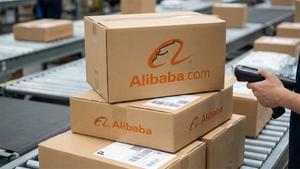- British Airways and Phillips 66 Limited have signed a multi-year sustainable aviation fuel (“SAF”) supply agreement
- Sustainable aviation fuel produced at the Phillips 66 Humber Refinery in North Lincolnshire will help power a number of the airline’s flights from early 2022
- The Phillips 66 Humber Refinery will be the first to produce SAF at scale in the UK
- SAF is produced from sustainable waste sources and can reduce lifecycle CO2 emissions by over 80% compared to traditional jet fuel
- The airline is delivering a range of short-, medium- and long-term initiatives to decarbonise and achieve net zero emissions by 2050 as part of its BA Better World sustainability programme
British Airways will become the first airline in the world to use sustainable aviation fuel produced in the UK after signing a multi-year agreement with Phillips 66 Limited.
The SAF will be produced at scale for the first time in the UK at the Phillips 66 Humber Refinery near Immingham and will be supplied to British Airways to power a number of its flights from early 2022.
The supply agreement between British Airways and Phillips 66 Limited, a wholly owned subsidiary of diversified energy manufacturing and logistics company Phillips 66, advances both companies’ commitments to a lower-carbon future. The airline, which is driving to achieve net zero carbon emissions by 2050, will purchase enough sustainable fuel to reduce lifecycle CO2 emissions by almost 100,000 tonnes, the equivalent of powering 700 net zero CO2 emissions flights between London and New York on its fuel-efficient Boeing 787 aircraft.
The SAF will be produced from sustainable waste feedstock at the Humber Refinery, which will deliver its SAF supply to British Airways via existing pipeline infrastructure that feeds directly into UK airports.
Sean Doyle, British Airways’ Chairman and Chief Executive, said:
“This agreement marks another important step on our journey to net zero carbon emissions and forms part of our commitment, as part of International Airlines Group, to power 10% of flights with SAF by 2030.
“The UK has the resources and capabilities to be a global leader in the development of SAF and scaling up the production of SAF requires a truly collaborative approach between industry and government.
“We are excited to develop our relationship with Phillips 66 Limited further with a view to growing production capacity and using a wider range of sustainable waste feedstocks to supply our future flights. The development of sustainable aviation fuel is a major focus for us and forms part of our commitment to achieving net zero carbon emissions by 2050 through a series of short-, medium- and long-term initiatives.”
The airline’s parent company, International Airlines Group (IAG), is investing $400 million over the next 20 years into the development of SAF and British Airways has existing partnerships with a number of technology and fuel companies to develop SAF plants and purchase the fuel. SAF can reduce lifecycle carbon emissions by over 80% compared to the traditional jet fuel it replaces.
Humber Refinery General Manager Darren Cunningham, the Lead Executive for Phillips 66 in the UK, said the announcement reflects the importance the aviation and energy industries are placing on sustainability and the continued development, adoption and scaling up of sustainable aviation fuel.
“The Humber Refinery was the first in the UK to co-process waste oils to produce renewable fuels and now we will be the first to produce SAF at scale, and we are delighted British Airways is our first UK customer,” Cunningham said. “We’re currently refining almost half a million litres of sustainable waste feedstocks a day, and this is just a start. Markets for lower-carbon products are growing, and this agreement demonstrates our ability to supply them.”
Last year Phillips 66 Limited invested significantly to expand its production of fuels from waste feedstocks. The investment is part of a broader energy transition plan to reduce the carbon intensity of its refinery operations and products that support 1,000 Humber Refinery jobs.
“This agreement with British Airways aligns with our strategy to create a refinery of the future, where we’re producing fuels from waste, being a critical part of the electric vehicle supply chain, reducing the carbon intensity of our processes through carbon capture and using hydrogen to power the refinery,” Cunningham said. “It secures long-term business in an ever-changing world.”
Phillips 66 and British Airways support government plans for a future SAF mandate and a business model for investing in advanced waste to jet fuel projects through participation in the Department for Transport’s Jet Zero Council Delivery Group, of which British Airways and Phillips 66 Limited are members.
ENDS
Notes to Editors
SAF is a lower carbon-intensity fuel that can be produced from renewable feedstocks such as waste vegetable oils, fats and greases. It is a drop-in fuel when either blended with traditional jet fuel or co-processed alongside traditional refinery feedstocks, meaning it can be used in existing aircraft engines and airport fuel infrastructure, reducing lifecycle carbon emissions by more than 80% compared with traditional fossil fuels.
About British Airways
International Airlines Group was the first airline group in the world to commit to achieving net zero carbon emissions by 2050.
The airline is committed to achieving net zero carbon emissions through a series of short-, medium- and long-term initiatives. In the short-term this includes improving operational efficiency, introducing new fuel efficient aircraft, funding carbon offset and removal projects to mitigate emissions on UK domestic flights and progressively introducing sustainable aviation fuels using waste feedstocks, while in the medium to longer term the includes continuing to invest in the development and scale up of sustainable aviation fuel and looking at accelerating the growth of new technologies such as zero emissions hydrogen-powered aircraft and carbon capture technology.
- More detail on British Airways’ partnerships to develop sustainable aviation fuel which have received Government funding can be found here.
- More details on British Airways’ sustainability programme, BA Better World can be found here.
- More details on the airline’s partnership with LanzaJet to develop and offtake SAF can be found here.
- More details on the airline’s partnership with Velocys to develop and offtake SAF can be found here.
About Phillips 66
Phillips 66 is a diversified energy manufacturing and logistics company. With a portfolio of Midstream, Chemicals, Refining, and Marketing and Specialties businesses, the company processes, transports, stores and markets fuels and products globally. Headquartered in Houston, the company has 14,100 employees committed to safety and operating excellence. Phillips 66 had $56 billion of assets as of Sept. 30, 2021. For more information, visit www.phillips66.com or follow us on Twitter @Phillips66Co and @Phillips66UK.
The Phillips 66 Humber Refinery in North Lincolnshire is considered one of the most sophisticated and energy efficient in the country. It is a leader in the production of specialty coke, a key component for electric vehicle batteries, and participates in the Gigastack long-term project to generate green hydrogen. The refinery also is a participant in the Humber Zero project, which combines carbon capture and storage technology with hydrogen production. Visit www.Phillips66.co.uk.
- More details on Phillips 66’s collaboration with Southwest Airlines on SAF can be found here.
- More details on Phillips 66’s Energy Research & Innovation organization can be found here.
View source version on businesswire.com: https://www.businesswire.com/news/home/20211202005952/en/
Contacts
British Airways
pressoffice@BA.com
Phillips 66
Jeff Dietert, 832-765-2297 (investors)
jeff.dietert@p66.com
Shannon Holy, 832-765-2297 (investors)
shannon.m.holy@p66.com
Thaddeus Herrick, 855-841-2368 (media)
thaddeus.f.herrick@p66.com
Nina Stobart, 01469 555044 (UK media)
nina.stobart@p66.com





